What is better, metal tiles or soft roofing? Comparison of technical characteristics, pros and cons of coatings
It's not easy to choose the right one.
Metal tiles- a roofing covering made of metal wave-shaped sheets, which are sprayed with a protective layer of polymer enamel.
The variety of shapes and colors determine the popularity of the coating.
Soft roof(otherwise - flexible (bitumen) tiles) - roofing tiles based on modified bitumen and fiberglass and granulate. The granulate on the outside provides the base with various color shades, and the bottom self-adhesive adhesive layer ensures reliable installation of the coating.
Soft roofing or metal tiles: advantages and disadvantages roofing data.
TO merits metal tiles include:
- strength coatings;
- wide range of colors;
- durability;
- waterproof;
- ease of installation;
- non-flammability;
- ease tile sheet.
The disadvantages are:
- low level of sound insulation;
- complex roof structure implies high consumption tiles;
- has good thermal conductivity;
- possible occurrence corrosion if the material is damaged.
Despite the presence of shortcomings, metal tiles are one of the most popular coatings on the building materials market. Disadvantages such as low noise insulation and good thermal conductivity can be eliminated by insulating the roof with high-quality thermal insulation.
Advantages and disadvantages of soft roofing
Soft tiles also have their pros and cons.
Its advantages include:
Identified deficiencies soft tiles:
- high price;
- installed only on solid sheathing;
- susceptible to burning.
Manufacturers present soft tiles as a coating that is not susceptible to the appearance of fungus or the development of mold, however, during operation, buyers noticed the appearance of fungus in the shady areas of the roof.
Which material is easier and cheaper to install?
Installation of any roofing involves its own characteristics, depending on the characteristics of the material.
Let's compare the installation of metal and bitumen shingles according to the following indicators:
- by price;
- installation difficulties.
Cost Cost
If we consider separately the price of tiles based on the roof area, then the cost of both coatings is approximately the same: The price difference may depend on the manufacturer. When purchasing, you should rely on the experience of specialists:
- metal tile sheets should be take in reserve, since during installation there can be a lot of waste;
- When installing a soft roof, there is almost no waste, however, you'll have to spend money on the sheathing, laying it in a continuous manner. This type of lathing can be justified: in this case, the insulating characteristics of the roof increase and the sound insulation qualities increase. But it is not always necessary, especially if the attic space is non-residential.
- in places prone to leaks, it is recommended under bitumen shingles lay special lining materials to provide ;
- for the installation of roofs under metal tiles or under soft roofing, they have approximately the same cost (eaves, drains, end strips, gutters).
Thus, the cost of a supply of metal tile coverings is much lower than for the equipment of a continuous roof sheathing, laying underlay carpets under a bitumen roof, therefore, in general you will have to spend almost twice as much on a soft tile covering.

Difficulty of installation
Difficulty of installation
Complexity laying metal tiles and soft roofs yourself approximately the same:
- metal tiles are laid with self-tapping screws, and sheets of soft roofing are glued and nailed; to calculate the roof, you can use ours;
- metal tile sheets are lighter, this allows you to spend less physical effort on styling. Soft sheets of tiles in packaging are heavier, so the only difficulty that may arise is lifting the material onto the roof;
- metal tiles are more difficult to cut than soft tiles;
- laying metal tile sheets costs a lot less time than its soft counterpart.
NOTE!
Installation of soft roofs should be carried out at temperatures not lower than +5° C. At low temperatures, when pressed, the material may be deformed and the adhesive seal will be affected.
Installation temperature is the only difficulty in laying flexible roofing compared to metal tiles. But, since roofing work is most often carried out during the warm period, this circumstance is not always relevant.
In general, you can quite easily handle it yourself both when covering the roof with metal tiles and when installing a bitumen coating.
Comparison of dimensions and technical characteristics
The dimensions and weight of the covering material are considered to determine the load of the covering material on the roofs.
Dimensions and weight of materials
 Metal tiles are produced sheets up to 450 cm long, up to 119 cm wide.
Metal tiles are produced sheets up to 450 cm long, up to 119 cm wide.
The weight of one square meter covered with metal tiles is approximately 5 kg.
Soft roofing is made using shingle strips length 100 cm, width - up to 33.7 cm.
Despite the small size of the sheets, The weight of one square meter of soft roofing can reach 12 kg.
Thus, the load on the roof rafter system of large sheets of metal tiles is much less than sheets of bitumen roofing.
Comparison of technical characteristics
The excellent technical performance of one material cannot be expressed in another, but this problem can be solved:
- The noise insulation properties of metal sheets are significantly inferior to those of bituminous material. Compensate for this deficiency when laying metal tiles, you can use laying;
- when laying metal tiles, it is necessary to install, which is not required for bitumen coating due to the rough surface that can retain snow;
- with good non-flammability of metal tiles, g A flexible roof, on the contrary, is susceptible to burning.
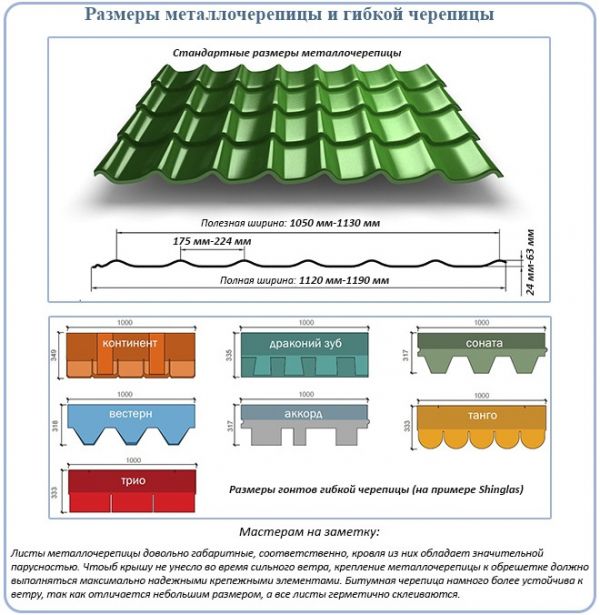
Coating characteristics
Characteristics of durability, color fastness, strength, resistance to external influences, environmental friendliness, water resistance of metal tiles and bitumen shingles almost identical. The coating can retain its properties in different climatic conditions in different ways. All characteristics and indicators are focused on regions of temperate climate.
Conclusion: metal tiles or soft roofing, which is better?
So, flexible tiles or metal tiles, which is better? Based on all the material indicators, it is quite difficult to decide on the choice of coating. 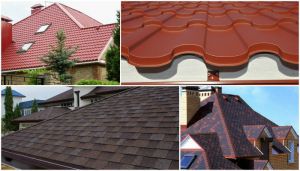
It is not for nothing that metal tiles and soft roofing are the most popular covering materials: their technical characteristics allow you not to think about replacing the roofing for many years, and the range of colors, variety of material configurations, and brightness can decorate the structure and give it individuality.
Bituminous shingles allow you to implement the most daring design solutions, as it is capable of covering the most ornate roofs with many bends and slopes.
Metal tiles are cheaper than flexible tiles, but at the same time, soft tiles have excellent sound insulation and are well suited for attic roofs.
The main indicator of coverage is its price. Experts do not recommend saving on roofing, since the roof is the main indicator of coziness, warmth, and comfort in the house.
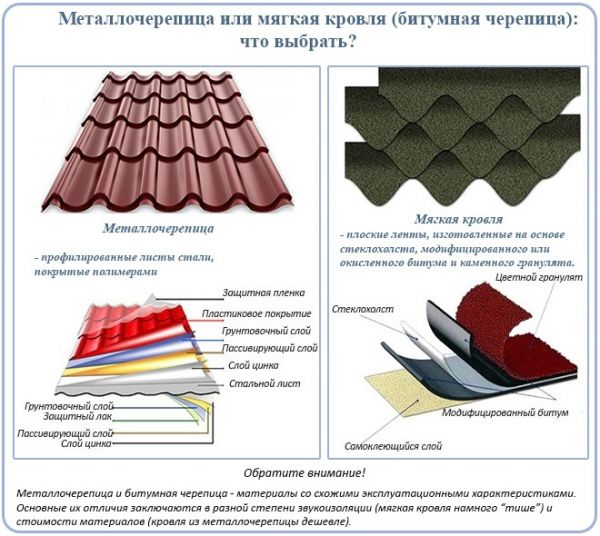
metal tiles or soft roofing
Metal tiles are suitable for more strict - two- or three-slope roofs, which have few inclined ribs and are free of hard-to-reach places.
Useful video
Comparison of technical characteristics of these coatings in video format:
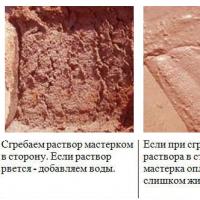 Masonry mortars for brick kilns
Masonry mortars for brick kilns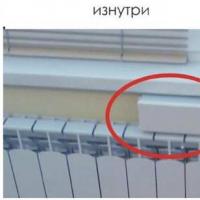 Why do the windows in the apartment fog up?
Why do the windows in the apartment fog up?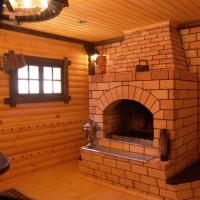 Construction and diagrams of brick stoves
Construction and diagrams of brick stoves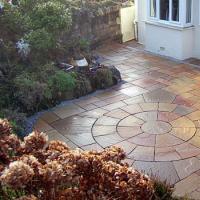 How to lay paving slabs: tips and tricks
How to lay paving slabs: tips and tricks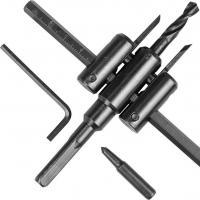 How to drill tiles in the bathroom
How to drill tiles in the bathroom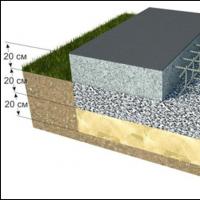 Monolithic slab on coarse soil
Monolithic slab on coarse soil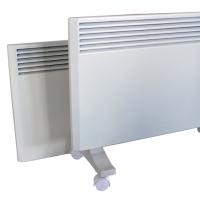 Which electric heater is economical?
Which electric heater is economical?